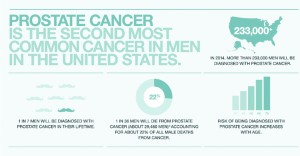 Starting to notice more men sporting beards and/or mustaches? There is a good reason why. Movember Foundation started in 2004 in Melbourne, Australia as a way to raise awareness for prostate cancer and depression. Almost ten years later the idea has caught on as the cause has reached a corporate and even worldwide level in support. No doubt Facebook, Twitter, Tumblr, and other popular social media sites will be sporting campaigns for Movember, or just personal shots of friends with a scruffy face. The idea being men growing out their facial hair to show support and awareness. Celebrities getting involved in the movement include Justin Timberlake, Jake Gyllenhall, Brad Pitt, and Hugh Jackman.
Starting to notice more men sporting beards and/or mustaches? There is a good reason why. Movember Foundation started in 2004 in Melbourne, Australia as a way to raise awareness for prostate cancer and depression. Almost ten years later the idea has caught on as the cause has reached a corporate and even worldwide level in support. No doubt Facebook, Twitter, Tumblr, and other popular social media sites will be sporting campaigns for Movember, or just personal shots of friends with a scruffy face. The idea being men growing out their facial hair to show support and awareness. Celebrities getting involved in the movement include Justin Timberlake, Jake Gyllenhall, Brad Pitt, and Hugh Jackman.
Every year during the month of November the Movember Foundation encourages men all over the United States to get involved. Movember Foundation’s goal is to increase early cancer detection, diagnosis, treatments, and reduction of preventable deaths. The Movember Foundation also encourages men to get annual check-ups, know the history of cancer in the family, and live healthy lifestyles.
Prostate cancer develops in the male reproductive system. Cancer cells tend to metastasize from other parts of the body such as the lymph nodes and bones. Most men notice problems urinating and difficulty during sexual intercourse. The most obvious is self exam and realizing a hard lump in the testes. Early detection is key when confronted with prostate cancer and getting proper treatment. Treatments often include radiation, chemo therapy, and surgery. As of 2013 an estimate of about one out of every six men in the United States will be diagnosed with prostate cancer and almost 30,000 men will die of prostate cancer, a ratio of about one in thirty men diagnosed with prostate cancer, and is the 6th cancer related causes of deaths among men. Prostate cancer occurs mainly in men over the age of 40. Common risk factors are genetics, early sexual activity, and dietary. Many men that struggle through the affects of prostate cancer suffer from depression while dealing with feelings of feeling ill during treatments, medical bills, mortality, and the worry of not feeling “whole” afterwards.
Raising awareness has improved the rate of survival of prostate cancer survivors. So ladies, embrace your man’s scruffy face and hope that having facial hair for 30 days is the least of his problems. Encourage all the men in your life to help raise awareness with a fuzzy
face, whether it is a father, brother, uncle, grand-father, or just that special friend. Men put down those shavers! Guys unite to combat prostate cancer one face at a time, take what could be a lifesaving movement and help raise awareness during the month of November and grow those whiskers out.
At Maximum’s Men’s Clinic we specialize in all things relating to men’s health. Dr Herbert Fishman, medical director at Maxim Men’s Clinic has 30 years experience in family practice specializing in Men’s Health and Sports Medicine.
For your free consultation contact our team at 561-459-3000.
Screening tests can find cancer early, when it’s more treatable.
• Colon Cancer: Many colon cancers begin as growths called polyps. If these polyps are found through screening and removed before they turn into cancer, the disease can be stopped before it starts. Screening can also find cancer
before it has had a chance to grow and spread. Start testing at age 50, or younger if people in your family
had colon cancer, or if you have had colon problems in the past.
Talk to your doctor about which test is right for you.
• Prostate Cancer: Starting at age 50, men should talk to their doctor about the pros and cons of prostate cancer testing, then decide if they want to be tested. Men at high risk (African-American men and those with a family history of the disease) should have this talk at age 45 or 40.
• Skin Cancer: During your regular checkups, have your doctor check your skin for signs of skin cancer. If you notice any changes to existing moles, tell your doctor right away.
Healthy lifestyle choices can lower your risk for cancer.
• Quit smoking. In the US, tobacco use is responsible for nearly 1 in 5 deaths. About half of all people who continue to smoke will end up dying from a tobacco-related disease. Tobacco use causes more than a dozen types of cancer, as well as heart disease, emphysema, and stroke.
• Get regular exercise. Each week, adults should get at least 150 minutes of moderate-intensity activity (the level of a brisk walk) or 75 minutes of vigorous-intensity activity (the level of a run), preferably spread throughout the week. Clear any new activity with your doctor.
• Eat healthy. Eat at least 2 ½ cups of vegetables and fruits each day. Eat less bacon, sausage, luncheon meats, hot dogs, and other processed meats. Choose whole-grain breads, pasta, and cereals.
• Limit how much alcohol you drink (if you drink at all). Men should have no more than 2 drinks a day.
Check Also
Trusted Homecare Agency: Serving Veterans with Free Supplemental Home Healthcare
When it comes to healthcare, veterans deserve the best care possible. For veterans seeking in-home …
 South Florida Health and Wellness Magazine Health and Wellness Articles
South Florida Health and Wellness Magazine Health and Wellness Articles




